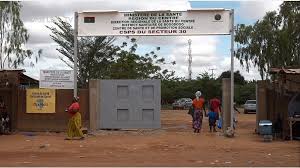Since 2016, Burkina Faso has introduced a policy of free healthcare for pregnant women and children under five. ThinkWell and its research partner RESADE have conducted a detailed analysis of the free healthcare policy in collaboration with the Ministry of Health. The main findings of the report, which has now been made public, are as follows:
- Gratuité seems to have achieved its main objectives, namely to improve access to services and reduce direct healthcare costs for patients.
- The aim of free services is not to directly improve service quality. Unsurprisingly, there is no evidence that the quality of these services has improved as a result of the introduction of the free service;
- Gratuité was not adequately funded in 2018 and 2019, which probably led to an increase in debts to the Centrale d’achat de médicaments essentiels et génériques (CAMEG) ;
- The choice of the Gratuité fee-for-service billing mechanism was motivated by the fact that it was perceived as “fair” by providers, and that it avoided reducing the quality of services. The ST-CSU recognizes a compromise between this option and that of another provider payment mechanism in order to control costs and gain administrative efficiency;
- Perceptions of late or insufficient payment are a major cause of dissatisfaction with the Gratuité program among service providers;
- Gratuity control and validation systems are relevant as long as contracts with contractors are maintained.
The report is available for download on the platform in English and French.


